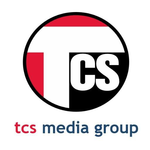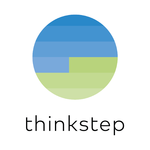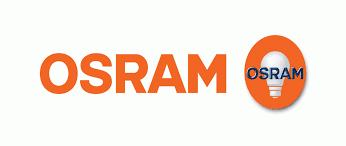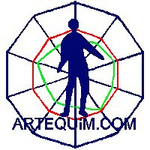Description

nZero

TCS CRM
Comprehensive Overview: nZero vs TCS CRM
As of my last update, information on "nZero" and "TCS CRM" might be limited, outdated, or nonexistent in terms of widely recognized brand offerings. However, I'll provide a speculative overview based on typical CRM functionalities and any available information, and we'll explore the typical positioning and differentiation factors one might expect in CRM tools.
a) Primary Functions and Target Markets
nZero:
- Primary Functions: Typically, a CRM like nZero would include customer relationship management features such as contact management, sales tracking, marketing automation, customer service, and support functionalities. These systems often include analytics and reporting tools to provide insights into customer behavior and sales performance.
- Target Markets: The target market for a CRM like nZero would likely be small to medium-sized enterprises (SMEs) looking for efficient customer management solutions. However, without specific data, this is speculative.
TCS CRM:
- Primary Functions: TCS (Tata Consultancy Services) is known for its comprehensive IT services and solutions, which likely extend to a CRM. This would include enterprise-level client management, integration with existing ERP systems, data analytics, and extensive customization options to tailor the tool to specific industry needs.
- Target Markets: As part of TCS's broader offerings, their CRM targets large enterprises, particularly those looking for integrated solutions that encompass more extensive IT service management, industry-specific customization, and infrastructure support.
b) Market Share and User Base
-
Market Share: TCS, being a part of a massive global IT services organization like Tata Consultancy Services, likely has a significant enterprise client base, especially in markets where they have a strong presence, such as India and other parts of Asia, Europe, and North America. However, TCS might not compete on the same level in terms of CRM-specific market share with giants like Salesforce or Microsoft Dynamics CRM—assuming its CRM is a standalone substantial offering.
-
User Base: Given TCS's reach and customer base, its CRM solution might have a substantial user base, particularly in sectors where TCS is heavily involved, such as banking, financial services, retail, and telecommunications.
-
nZero: Without definitive information, it is challenging to estimate its market share or user base. If it exists, nZero could cater mainly to niche markets or regional businesses.
c) Key Differentiating Factors
nZero:
- Differentiation Factors: If nZero is designed for SMEs, it might focus on ease of use, cost-effectiveness, and quick deployment. Integrating with popular small business tools and offering straightforward pricing structures could be key selling points.
TCS CRM:
- Differentiation Factors: TCS's strength likely lies in its ability to offer highly customizable and scalable CRM solutions that integrate seamlessly with broader IT systems. Their CRM might provide specific vertical solutions, robust security features, and an emphasis on leveraging TCS’s broader IT services expertise.
General Differentiation in CRM
- Customization & Integration: Enterprise solutions typically provide more integration capabilities with existing IT systems, a significant factor for large organizations.
- Ease of Use vs. Features: Smaller CRMs might offer simpler user interfaces and faster implementation times; larger ones might have steeper learning curves but offer more features and flexibility.
- Scalability: Enterprise-focused CRMs are generally built to scale and handle more extensive data and processes.
Given the speculative nature of the comparison, reaching out to the respective companies or more detailed industry resources for updated and specific information about nZero and TCS CRM offerings would be advisable.
Contact Info

Year founded :
Not Available
Not Available
Not Available
India
http://www.linkedin.com/company/nzero

Year founded :
Not Available
Not Available
Not Available
Not Available
Not Available
Feature Similarity Breakdown: nZero, TCS CRM
To provide a feature similarity breakdown between nZero and TCS CRM, we'll need to consider the typical functionalities and elements that Customer Relationship Management (CRM) systems often share, as well as any specific or unique features they might offer.
a) Core Features in Common
-
Contact Management:
- Both systems likely offer comprehensive contact management functionalities, enabling users to store and manage information about clients and leads.
-
Sales Automation:
- Automating sales processes, tracking sales opportunities, and managing sales pipelines are core features present in both systems.
-
Customer Support:
- Features to handle customer inquiries, support tickets, and track resolution times are typically shared.
-
Reporting and Analytics:
- Both products probably provide robust reporting tools allowing users to derive insights from their data, visualize performance metrics, and make data-driven decisions.
-
Integration Capabilities:
- Both systems likely support integrations with various third-party applications and services, such as email platforms, calendars, and other business tools.
b) User Interface Comparison
-
nZero:
- The user interface of nZero might be designed with a focus on ease of navigation and minimalism, making it intuitive for users to find and access core features quickly.
- It may provide a clean and modern UI with customizable dashboards to cater to user-specific needs.
-
TCS CRM:
- TCS CRM might feature a more comprehensive interface with detailed options and configurations suitable for larger enterprises.
- It could emphasize flexibility and configurability, offering a rich set of customization options to tailor the UI to specific business processes.
c) Unique Features
-
nZero:
- Sustainability Focus: If nZero specializes in certain industry niches like sustainability, it might offer unique features related to environmental impact tracking or carbon footprint management tailored for businesses looking to enhance their green credentials.
- Simplified Onboarding and Usability: nZero might focus on user-friendly setup processes to quickly onboard users and facilitate easy adoption, especially for smaller businesses or startups.
-
TCS CRM:
- Advanced Customization: Known for its enterprise solutions, TCS CRM may offer extensive customization options and advanced automation tailored for large-scale operations with complex workflows.
- Industry-Specific Solutions: TCS might provide CRM solutions tailored for specific industries such as finance, healthcare, or manufacturing, each with specialized modules or integrations.
- Global Support and Services: TCS's global presence might facilitate comprehensive customer support, consulting, and implementation services across various regions.
These are speculative assessments based on common CRM features and not exhaustive. For precise feature lists and comparisons, direct access to the most recent product documentation, demos, or client reviews from the respective companies would be beneficial.
Features

Not Available

Not Available
Best Fit Use Cases: nZero, TCS CRM
nZero Use Cases:
a) Best Fit for nZero:
-
Carbon Management and Sustainability Initiatives: nZero is ideal for organizations focused on environmental sustainability, carbon footprint management, and achieving net-zero emissions. It caters to businesses across various industries looking to track, report, and reduce their carbon emissions.
-
Energy and Utility Companies: Companies in these sectors can utilize nZero to manage their energy consumption, optimize resources, and monitor their impact on the environment. nZero helps in compliance with environmental regulations and in implementing sustainable practices.
-
Large Enterprises with ESG Goals: Large organizations with significant environmental, social, and governance (ESG) goals can use nZero to integrate sustainability into their core operations, enhancing transparency and accountability in their environmental reporting.
-
Public Sector and Municipalities: nZero is applicable for government bodies and local authorities that aim to manage public resources efficiently, reduce community emissions, and meet regulatory or policy-driven sustainability targets.
TCS CRM Use Cases:
b) Preferred Scenarios for TCS CRM:
-
Customer-Centric Businesses: TCS CRM is best suited for businesses that prioritize customer relationships, including retail, financial services, and telecommunications. It helps manage customer interactions, streamline communication, and improve customer satisfaction.
-
Complex Sales Environments: In industries like pharmaceuticals and high-tech where sales cycles are complex and multi-faceted, TCS CRM supports sales force automation, enabling efficient management of leads, opportunities, and sales performance.
-
Customer Service-Driven Entities: Organizations with extensive customer service operations, such as e-commerce or consumer goods, benefit from TCS CRM’s capabilities in managing service requests, support tickets, and post-sale communications.
-
Enterprises Focused on Digital Transformation: Companies undergoing digital transformation initiatives can leverage TCS CRM to enhance their customer engagement strategies and harness data for personalized marketing efforts.
d) Catering to Different Industry Verticals or Company Sizes:
-
nZero:
- Industry Verticals: Primarily focuses on sectors with high energy consumption and significant environmental impact, such as energy, utilities, transportation, and manufacturing.
- Company Sizes: Scalable for large enterprises or smaller organizations committed to sustainability goals.
-
TCS CRM:
- Industry Verticals: Versatile across multiple sectors, including retail, financial services, telecommunications, and healthcare, accommodating specific industry needs such as regulatory compliance and customer engagement.
- Company Sizes: Suitable for small to large enterprises, given its modular structure which allows for customization based on the scale and specific business requirements.
Both products serve distinct purposes and cater to different organizational needs, enabling businesses to achieve their strategic objectives whether they are centered on sustainability or customer relationship management.
Pricing

Pricing Not Available

Pricing Not Available
Metrics History
Metrics History
Comparing undefined across companies
Conclusion & Final Verdict: nZero vs TCS CRM
To provide a conclusion and final verdict on nZero and TCS CRM, let's delve into each of the requested components:
a) Best Overall Value
nZero vs. TCS CRM: When determining the product offering the best overall value, it is essential to look at several factors such as cost, features, integration capabilities, support, scalability, and user-friendliness.
-
nZero:
- Pros: Typically offers more customizable features, making it ideal for businesses with unique needs. It may also have a more user-friendly interface, which could reduce training time and increase user adoption.
- Cons: It might come with a higher upfront cost, especially if customization or integration with existing systems is required.
-
TCS CRM:
- Pros: Potentially more cost-effective, particularly for businesses looking for robust yet standard CRM features out-of-the-box. It may offer better scalability options and comprehensive support solutions due to the backing of a larger organization.
- Cons: It might be less flexible compared to nZero in terms of customization. Its user interface might be more complex for new users.
Verdict: TCS CRM may offer the best overall value for businesses looking for a reliable, scalable, and cost-effective solution without needing extensive customization. For organizations that require a highly tailored CRM experience and are willing to invest more upfront, nZero could be the better option.
b) Pros and Cons
nZero:
-
Pros:
- Highly customizable.
- User-friendly interface.
- Strong support for integration with various third-party applications.
- Ideal for specific, niche market needs.
-
Cons:
- Potentially higher costs.
- May require longer implementation time.
- Could involve a steeper learning curve for complex features.
TCS CRM:
-
Pros:
- More affordable, with competitive pricing.
- Centralized support services from a large, established company.
- Scalable and can grow with the business.
- Strong analytics and reporting features.
-
Cons:
- Less customizable compared to nZero.
- Possible complexity in the user interface for beginners.
- Might offer fewer niche features without additional development.
c) Specific Recommendations
For users trying to decide between nZero and TCS CRM:
-
Evaluate Current and Future Needs: Consider the level of customization and integration you require now and anticipate needing in the future. If flexibility and tailored solutions are priorities, nZero may be a worthwhile investment.
-
Budget Considerations: Analyze both initial costs and long-term expenses, including any hidden costs associated with customization or scaling. TCS CRM might fit better within a constrained budget yet offer substantial growth potential.
-
Trial and Testing: If possible, undertake a trial period with both platforms to gauge which interface and feature set align better with your team's workflows and expectations.
-
Peer Reviews and Case Studies: Research customer reviews and case studies relevant to your industry to understand the real-world performance and user satisfaction of both CRM systems.
-
Support and Training: Consider the quality of support and the training resources available. Organizations that prioritize user empowerment might lean towards platforms with extensive training materials and responsive support systems.
In summary, the choice between nZero and TCS CRM is highly dependent on the organization's specific needs, budget constraints, and user flexibility requirements. Each offers distinct advantages, and your decision should align with your overall business strategy and long-term CRM goals.
Add to compare
Add similar companies



